
On 8th April 2012, Boko Haram suicide bombers drove explosive-laden vehicles into two popular churches in Kaduna, killing at least 38 people. They also left dozens of others injured in a terror attack that shook the nation. Exactly 18 days later, another suicide bomber drove into THISDAY premises in Abuja in a deadly attack that I was only lucky to have narrowly missed. Notwithstanding these attacks, the United States administration of President Barack Obama maintained its position that the insurgents were merely responding to the socio-economic crises in Nigeria and refused to designate Boko Haram a foreign terrorist organization, as requested by the government of President Goodluck Jonathan. “Boko Haram thrives because of social and economic problems in the north that the government must find a way of addressing,” Mr. Johnnie Carson, the then US Assistant Secretary of State for African Affairs, said in a statement that reflected the sentiment of both the Obama administration and some people in Nigeria at the time.
More than 13 years later, the security situation in Nigeria is again being misread by another US administration, this time of President Donald Trump. Like Obama before him, President Trump is responding to a one-sided narrative resulting from the mismanagement of our diversity. “They’re killing record numbers of Christians in Nigeria. They’re killing the Christians and killing them in very large numbers. We’re not going to allow that to happen,” wrote the US president on his social media handle where he also instructed the US Department of War to prepare for a possible military action in Nigeria. Responding to the presidential social media post, US Defence Secretary Pete Hegseth wrote: “Yes sir. The Department of War is preparing for action. Either the Nigerian Government protects Christians, or we will kill the Islamic Terrorists who are committing these horrible atrocities.”
It is quite interesting, but not surprising, that just as the Obama administration enjoyed the support of a section of Nigerians who could not see beyond their opposition to Jonathan, Trump is also being applauded, even enabled, by a section of Nigerians who delude themselves into believing this is about their interest. But before I come back to the Trump threat and its wider implications, it is important to situate how a misreading of the situation in Nigeria vis-à-vis Boko Haram by the Obama administration ultimately proved unhelpful to the challenge of fighting insurgency in our country.
Three months after the Abuja bombings earlier highlighted, specifically on 10th July 2012, the US Congress Subcommittee on Africa, Global Health and Human Rights of the Committee on Foreign Affairs held a special hearing titled, “US Policy Toward Nigeria: West Africa’s Troubled Titan”. Apart from Carson, the then Christian Association of Nigeria (CAN) President, Pastor Ayo Oritsejafor was invited to address the US lawmakers. My American friend, Professor Darren Kew, who has for almost three decades been involved in interfaith peacebuilding in our country, also spoke at the session on “The Crisis in Christian-Muslim Relations in Nigeria.”
In his testimony at the congressional hearing, Carson maintained the Obama administration’s line that “Boko Haram capitalizes on popular frustration with the nation’s leaders, its poor government, its ineffective service delivery and the dismal living conditions of many northerners.” But the introduction to the report summed up what the Obama administration thought of Jonathan. “In Nigeria, President Goodluck Jonathan is considered to be the personification of his name, a fortunate politician who has been in the right place at the right time to enjoy a meteoric rise in politics with no perceived political base or political distinction in his relatively brief career.”
Expectedly, Carson’s testimony hinged on the argument that the Boko Haram crisis stemmed from socio-economic challenges in Nigeria. But he also admitted this: “Although our understanding of Boko Haram is limited, we believe it is composed of at least two organizations. A larger organization focused primarily on discrediting the Nigerian Government, and a smaller, more dangerous group that is increasingly sophisticated and lethal in its objective and tactics. The smaller group has developed links with AQIM (Al-Qaeda in the Islamic Maghreb) and has a broader anti-Western agenda. This group claimed responsibility for the kidnapping of Westerners and for the attacks on the United Nations building in Abuja. They also bomb churches to aggravate ethnic and religious tensions in an attempt to sow chaos and increase their public profile.”
On his part, Oritsejafor (who was invited to the session from Nigeria) warned that the refusal by the Obama administration to classify Boko Haram as a terrorist organisation would have serious consequences. “By refusing to designate Boko Haram as a foreign terrorist organisation, the United States is sending a very clear message, not just to the federal government of Nigeria, but to the world that the murder of innocent Christians and Muslims who reject Islamism, and I make a distinction between Islam and Islamism, are acceptable losses…A non-designation for the group only serves to hamper the cause of justice and has emboldened Boko Haram to continue to strike out at those who are denied equal protection under the law.”
After highlighting the danger Boko Haram posed to a peaceful co-existence in Nigeria, Oritsejafor ended his speech on a note of caution: “Let me remind us that this is not about economics at all, but about an ideology based on religious intolerance that has a history of sponsoring genocide across the globe. As Boko Haram increasingly turns toward genocide through systematic targeting of Christians and Christian institutions in pursuit of its goals, history will not forget the actions or inactions of your great nation.”
Applying the law introduced by Senator Patrick Leahy in 1997 on the primacy of human rights record in military operations, the Obama administration blocked the sale of arms to Nigeria not only from America but also through their allies. “As we look at equipment transfers, we look at the situation in those countries in the past few years,” the then American Ambassador to Nigeria, Mr. James Entwistle said while rationalising the decision to deny arms sales to our military. “As you all know, there have been instances (I’m not saying across the board) of human rights abuses by the Nigerian military in the Northeast.”
So frustrated was President Jonathan by the antics of the Obama administration that in November 2014, the federal government halted the US training of Nigerian soldiers fighting Boko Haram. The decision, according to a top military officer with whom I spoke before writing my book, ‘Against the Run of Play: How an Incumbent President was Defeated in Nigeria’, was taken because “it made no sense for them to be training our officers and men and refuse to sell to us the necessary arms to fight. Were we expected to fight with our bare arms? I believe President Jonathan was correct in putting a halt to the hypocritical nonsense.”
I have provided the foregoing background because I believe it is important to draw from the lessons of history. While the social economic context that created a fertile recruitment ground for Boko Haram should not be dismissed, I still believe that the stance of the Obama administration to our national security challenge was flawed. Even when there is a world of difference between Obama not selling arms or refusing to designate Boko Haram as a foreign terrorist organization and Trump threatening to attack Nigeria guns-a-blazing—one is non-cooperation, the other is aggression—Obama could still have done more to help Nigeria. However, I must also state that no American administration owes us cooperation on how to deal with our self-inflicted problems just as none has the right to invade our country without any provocation.
Now that President Trump is presenting the security challenge in Nigeria as a sectarian problem against his beloved Christian population—which by the way includes me—it is important that he be properly engaged. And what the Tinubu administration must also understand is that a nation that is already fractured along many fault lines risks falling apart completely when people of different faiths are set against one another. I do, however, believe there is a window in the Trump approach that Nigeria can take advantage of.
I have been in the US for the past three weeks. Every day I scan the local newspapers for perspectives about the possibility of a military attack in Nigeria. While I have read a few interesting things, I am yet to come across a report from any credible source that suggests that the Trump idea is based on altruism or that there are indeed sectarian killings taking place in Nigeria. In his column in the Wall Street Journal on Tuesday titled, ‘Trump Gambles on Africa’, Walter Russell Mead, a Professor of Strategy and Statecraft at the University of Florida, said Trump’s recent claim on Nigeria has been debunked by what he described as the axis of fact-checkers. “Reducing the witches’ brew of tribal conflict, social disintegration, jihadist insurgency and religious violence afflicting that country to a charge of Christian genocide misses the complexity and scale of the horror,” Mead wrote. “Mr Trump is almost nowhere near dispatching Marines to Nigeria. But foreign policy and Africa will likely play a larger role in his second term than many of his supporters and critics thought possible last year.”
Despite coming to office with what could be considered an isolationist policy, Trump has proved in recent months that he is not completely averse to engaging with the world, albeit on his terms. If, as it is being suggested, he is interested in Africa, Nigeria must be ready to do deals with him. The recent New York Times report that the US military is drawing up contingency plans for potential airstrikes in Nigeria is particularly instructive. Should the ‘light option’—which reportedly focuses on intelligence sharing, logistics support, and joint operations with Nigerian forces—still be on the table, the Tinubu administration will do well to buy into it.
I am sure there are people who can convince Trump that Nigeria is as desperate to end the Boko Haram insurgency as he is interested in protecting his ‘Christian brothers’. Indeed, there is an important Trump Card (both literally and figuratively) that Nigeria could play in Dr Massad Boulos, the Lebanese-Nigerian who was in April this year appointed Senior Advisor for African Affairs by Trump. For the American President, his family means a great deal to him and Boulos is now a member by association. Michael, son of the billionaire businessman who was for several years the CEO of the family business, SCOA Nigeria PLC, is married to Tiffany Trump. Like his father, Michael grew up in Nigeria and I understand the young couple now spends considerable time in Lagos. Beyond the position the elder Boulus holds in the Trump administration and the family connection, he is also a Christian (his wife attends Pastor Paul Adefarasin’s ‘House on the Rock’ church) so his view will carry weight on this matter. Those are the kinds of people Nigeria requires to push our case in Washington at a time like this.
Overall, this is a watershed moment for both President Tinubu and Nigeria. The primary responsibility of government is the protection of the lives of citizens. With too many Nigerians being attacked in their homes or accosted on the highways by sundry criminal cartels, their faith remains the only armour of divine protection. Therefore, when evil forces sow seeds of discord between and among adherents of different faiths, the sense of utter helplessness becomes total and unforgiving. That perhaps is the greatest threat to national security properly defined. And that precisely is where we are in Nigeria today. It is a bad place to be for any nation.
Passage of a Model Public Servant
In the death of Major General Abdullahi Mohammed (rtd) at age 86, Nigeria lost a model public servant who dedicated his life to serving the people, a trailblazer in the truest sense, and a genuine father figure to many of us who knew him at the personal level. In the course of a sterling military career where he was, at various times, Military Governor of Benue-Plateau State and Director-General of the defunct National Security Organisation (NSO), Mohammed left indelible marks. And it is on record that he led the team that authored the Acts establishing the State Security Service (SSS), National Intelligence Agency (NIA) and Defence Intelligence Agency (DIA), making him one of the founding fathers of the secret service in Nigeria.
After his retirement from the military, Mohammed first went into the private sector before playing a critical role in the efforts that led to the birth of the current democratic dispensation as National Security Adviser to then Head of State, General Abdulsalami Abubakar. In 1999, President Olusegun Obasanjo appointed him as his Chief of Staff, a position he also held for more than one year under the late President Umaru Musa Yar’Adua. It was while he worked with the latter that I developed a close relationship with the late Mohammed who exemplified simplicity in every way. He wore simple white kaftan, drove in one car without escorts, was always the first to arrive at his office in the villa and usually the last to leave.
Throughout his public life, Mohammed led by example and was to the very end, an establishment man who served with dignity and purpose. For the past three decades, he remained one of those invisible problem solvers in Nigeria who was more interested in results than taking the glory for whatever was accomplished. It is indeed remarkable that in a status-obsessed society where even people of little achievements throw themselves around, Mohammed deliberately stayed out of the limelight while exhibiting a quiet strength that earned him the respect of everyone with whom he had contact.
Since our paths crossed at the Villa almost two decades ago, Mohammed related with me and my wife almost like we were his children and that brought our two families together. I am therefore aware that several years ago, he left instructions regarding how he wanted his funeral to be conducted and he was not even ill at the time. Such was his attention to detail. Even though I missed his burial (still in the US), I was delighted that these instructions were loyally complied with. He was buried according to Islamic rites with full military honours at the National Military Cemetery in Abuja.
At a more personal level, the late General Mohammed, a devout Muslim, was married to a committed Christian. That speaks volumes, especially at a time like this in our country when some would want to divide us along religious lines. To our mummy, Mrs Stella Mohammed, and my dear aburos, Shittu, Silifat, Aminat and Babatunde, please accept my condolences. May God continue to comfort the family.
A Note of Appreciation
As I wrote in April last year during the 50th birthday of my wife, such celebrations are a bit alien to me because I grew up with Christmas as the only period in the year worth looking forward to. For years, I have had my way in avoiding any birthday drama by travelling out of the country within the first ten days of November. But knowing that might not work this year, I asked my sister, Mrs. Uloma Egbuna, the CEO of Tours Brokers International (TBI), to book my family on the Caribbean Cruise from 2nd to 9th November. From Miami to the Bahamas through Puerto Rico and the island of Sint Maarten (where we spent last Thursday) it was a private but wonderful experience.
However, I must express my profound appreciation to President Bola Tinubu, former Vice President Atiku Abubakar, Hajia Turai Yar’Adua, Alhaji Aliko Dangote, Governors AbdulRasak AbdulRahman and Caleb Muftwang of Kwara and Plateau States respectively, former Governors Ibikunle Amosun, Ibrahim Shema and Godwin Obaseki, Mr. Remi Makanjuola, Professor Mahmood Yakubu, Dr. Tanimu Yakubu Kurfi, Alhaji Yayale Ahmed, Mr Richard Mofe-Damijo, Bishop David Abioye, my Pastor, Evaristus Azodoh and several others who either sent messages or reached out to me. I also appreciate my hosts, Professor Jacob Olupona and wife, Dupe, who always indulge me in their Boston home at this period of the year as well as colleagues (senior and junior), friends and numerous other well-wishers who sent messages (I still have more than 200 that I have not replied to on my phone). May things of joy never cease in your families.
• Segun Adeniyi is a seasoned journalist and a public affairs analyst

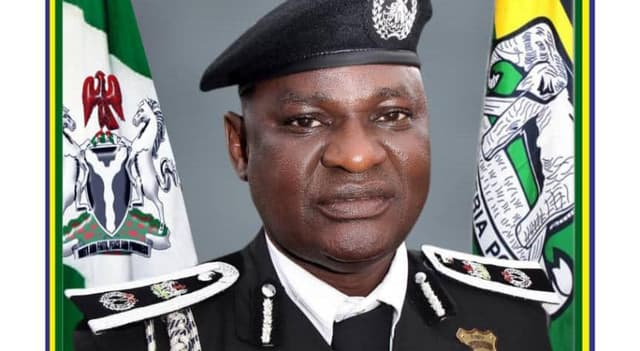

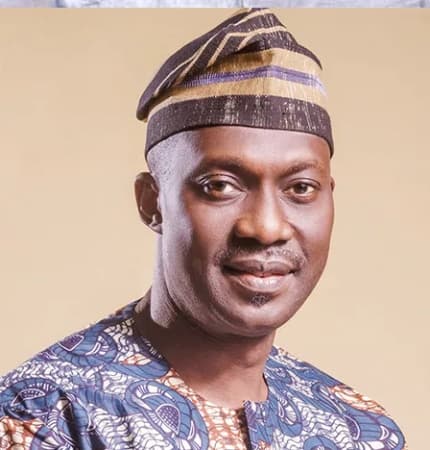
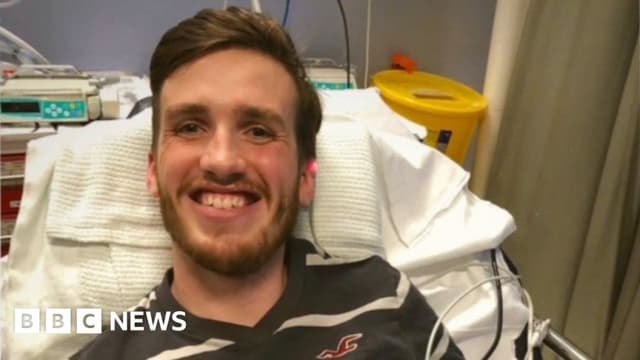
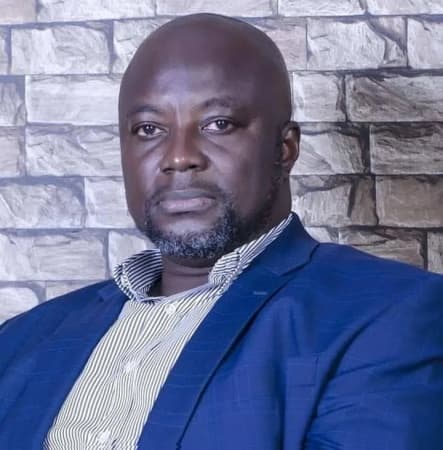
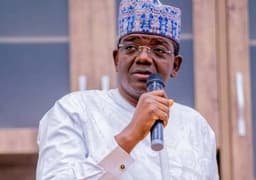
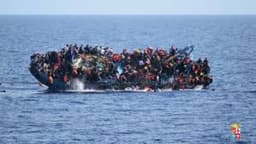
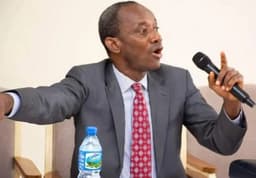
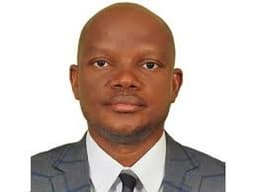
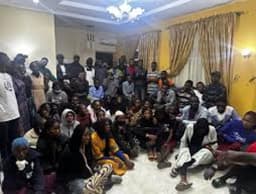
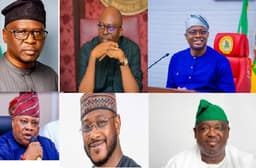

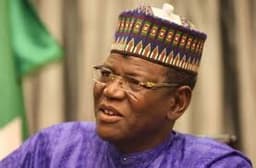













NEWS EXPRESS is Nigeria’s leading online newspaper. Published by Africa’s international award-winning journalist, Mr. Isaac Umunna, NEWS EXPRESS is Nigeria’s first truly professional online daily newspaper. It is published from Lagos, Nigeria’s economic and media hub, and has a provision for occasional special print editions. Thanks to our vast network of sources and dedicated team of professional journalists and contributors spread across Nigeria and overseas, NEWS EXPRESS has become synonymous with newsbreaks and exclusive stories from around the world.